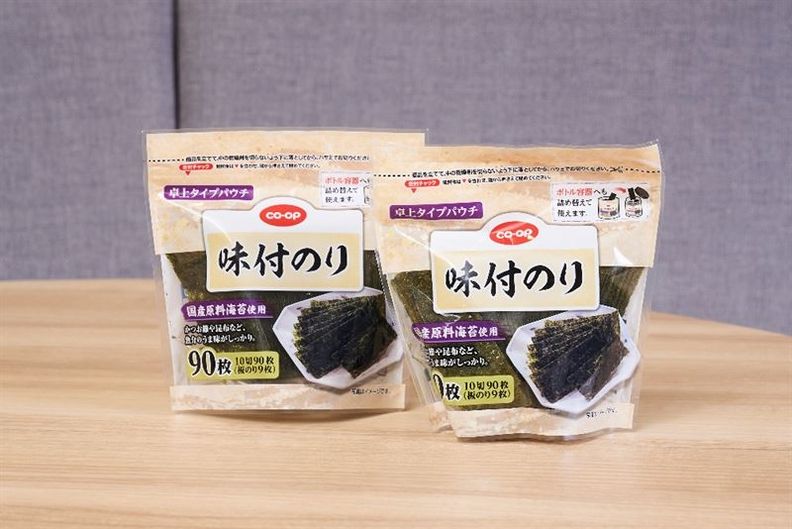
Finland-based Neste and Prime Polymer, a subsidiary of Japan-based Mitsui Chemicals, have developed a renewable polypropylene packaging material for a seaweed snack sold by CO/OP, a brand of the Japanese Consumers Co-operative Union (JCCU). The product, whose bio-content is attributed through the mass balance method, is the first of its kind to receive the Eco Mark certification from the Japan Environment Association (JEA).
The Eco Mark certification programme started in 1989 and indicates that a product has a lower environmental impact than its counterparts through its entire life cycle. It is managed according to ISO 14020 AND ISO 14024.
The packing is made from Neste Re, as the company calls the polymers and chemicals feedstock it produces from renewable waste, residue oils, and fats. Prime Polymer then processes that feedstock into renewable polypropylene under the brand name Prasus, which is then turned into food packaging for JCCU. The companies say the renewable material ‘comes with the same quality and performance as previously, when it was produced from fossil feedstock’, whilst ‘the sole difference lies in the reduced carbon footprint of the packaging and the replacement of fossil materials during its production.’
In the first phase of the collaboration, Neste and Prime Polymer are replacing virgin plastic with bio-based raw materials for the seaweed packaging alone. Going forward, the companies intend to introduce bio-based raw materials for more products.






